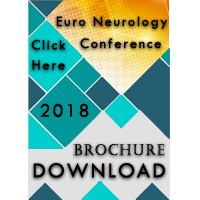Yong-Il Shin
Pusan National University, South Korea
Title: Low-level light emitting diode (LED) therapy suppresses inflammasome-mediated brain damage in experimental ischemic stroke
Biography
Biography: Yong-Il Shin
Abstract
Use of photostimulation including low-level light emitting diode (LED) therapy has broadened greatly in recent years because it is compact, portable, and easy to use. Here, the effects of photostimulation by LED (610 nm) therapy on ischemic brain damage was investigated in mice in which treatment started after a stroke in a clinically relevant setting. The mice underwent LED therapy (20 min) twice a day for three days, commencing at 4 hours post-ischemia. LED therapy group generated a significantly smaller infarct size and improvements in neurological function based on neurologic test score. LED therapy profoundly reduced neuroinflammatory responses including neutrophil infiltration and microglia activation in the ischemic cortex. LED therapy also decreased cell death and attenuated the NLRP3 inflammasome, in accordance with down-regulation of pro-inflammatory cytokines IL-1β and IL-18 in the ischemic brain. Moreover, the mice with post-ischemic LED therapy showed suppressed TLR-2 levels, MAPK signaling and NF-kB activation. These findings suggest that by suppressing the inflammasome, LED therapy can attenuate neuroinflammatory responses and tissue damage following ischemic stroke. Therapeutic interventions targeting the inflammasome via photostimulation with LED may be a novel approach to ameliorate brain injury following ischemic stroke.

